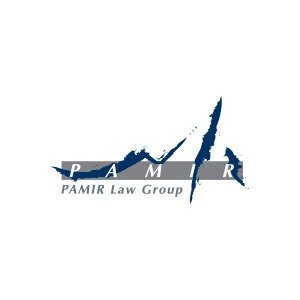Best Private Equity Lawyers in Taiwan
Share your needs with us, get contacted by law firms.
Free. Takes 2 min.
Or refine your search by selecting a city:
List of the best lawyers in Taiwan
About Private Equity Law in Taiwan
Private equity refers to investments in companies that are not listed on public stock exchanges, often involving the acquisition, restructuring, or growth financing of private businesses. In Taiwan, the private equity sector has experienced considerable growth over the past decades, driven by an active merger and acquisition (M&A) climate, maturing capital markets, and increasing international investor interest. Taiwanese law provides several vehicles for private equity investments, such as limited partnerships, corporations, and other fund structures, while also maintaining a regulatory environment that encourages both domestic and foreign investment. Understanding the legal landscape is critical to successful private equity transactions in Taiwan, as it affects how deals are structured, the rights of investors, and the mechanisms available for dispute resolution and exit strategies.
Why You May Need a Lawyer
Private equity transactions are complex and often involve significant risks. People and companies typically seek legal assistance in private equity for various reasons, including:
- Structuring and forming private equity funds or investment vehicles
- Negotiating and drafting investment agreements, shareholder agreements, or partnership contracts
- Conducting legal due diligence on target companies
- Navigating regulatory compliance, including filings with the Financial Supervisory Commission (FSC) and Investment Commission
- Facilitating cross-border investments or international joint ventures
- Managing tax implications and financial structuring
- Addressing disputes among partners, investors, or with portfolio companies
- Advising on exit strategies, such as initial public offerings (IPOs), buybacks, or third-party sales
Whether you are a fund manager, an institutional investor, or a business owner seeking investment, legal support is essential to ensure compliance, protect your interests, and facilitate successful outcomes.
Local Laws Overview
Private equity in Taiwan is governed by a range of laws and regulations that are relevant at every stage of a transaction. Some of the most significant include:
- Limited Partnership Act: Provides the framework for establishing private equity funds using the limited partnership structure, offering liability protection and operational flexibility.
- Company Act: Governs the operation and structure of corporations, which are often used as vehicles for private equity investments.
- Securities and Exchange Act: Imposes disclosure and reporting obligations, particularly in the context of financing rounds, share transfers, or preparation for IPOs.
- Business Mergers and Acquisitions Act: Regulates procedures for mergers, acquisitions, and corporate restructurings in which private equity funds are frequently involved.
- Foreign Investment Approvals: Overseen by the Investment Commission of the Ministry of Economic Affairs, this approval is often required for cross-border investments or share acquisitions by foreign investors.
- Anti-Monopoly and Fair Trade Laws: Ensure that transactions do not create unfair market dominance or violate competition rules.
- Tax Regulations: Impact returns on investment, especially regarding capital gains, withholding taxes, and preferential treatments available to certain investment structures or foreign investors.
Legal compliance with these laws is essential to avoid penalties, ensure validity of transactions, and protect stakeholders' interests.
Frequently Asked Questions
What is private equity and how does it work in Taiwan?
Private equity involves investing in private companies, often to support their growth, expansion, or restructuring. In Taiwan, private equity funds typically acquire shares or assets of target companies, providing capital and management expertise in return for eventual financial returns, such as through sale or public listing of the company.
Can foreigners invest in private equity in Taiwan?
Yes, foreigners can invest in private equity in Taiwan, subject to certain restrictions and regulatory approvals, particularly in sensitive sectors or where shareholding thresholds are met.
What legal structures are commonly used for private equity funds in Taiwan?
The most common structures are limited partnerships and corporations. Limited partnerships offer greater flexibility and tax efficiency, while corporations are sometimes chosen for operational familiarity or compliance reasons.
Are there any restrictions on private equity investments in certain industries?
Yes, some industries in Taiwan have foreign investment restrictions or require special approvals. These may include telecommunications, media, defense, and finance. A lawyer can help determine the regulatory environment for a specific industry.
How is due diligence conducted in private equity transactions?
Due diligence involves a comprehensive legal, financial, and operational review of the target company. Legal due diligence covers corporate documents, contracts, regulatory compliance, intellectual property, litigation risks, employment matters, and more.
What regulatory approvals are required for private equity deals?
Approvals may be needed from the Investment Commission for foreign investments, and the Fair Trade Commission for transactions exceeding certain market thresholds. Other licenses or permits may apply depending on the sector involved.
How are disputes commonly resolved in private equity cases?
Disputes may be resolved through negotiation, mediation, court proceedings, or arbitration, often depending on the terms of the investment contract or shareholders agreement.
What are common exit strategies for private equity in Taiwan?
Common exit strategies include selling the investment to a strategic buyer, taking the company public through an IPO, or selling shares back to the company or other investors.
What tax considerations should private equity investors be aware of?
Investors must consider capital gains tax, withholding taxes on dividends or profits, possible exemptions, and any treaties that may reduce withholding rates for foreign investors. Experienced legal and tax advice is advised before making investments.
Do private equity agreements need to be registered or notarized in Taiwan?
Generally, private equity investment agreements do not require notarization or registration, but certain filings may be necessary for share transfers, foreign investments, or regulatory compliance.
Additional Resources
If you need more information or assistance, consider reaching out to the following organizations or resources:
- Investment Commission, Ministry of Economic Affairs (for foreign investment approvals)
- Financial Supervisory Commission, R.O.C. (Taiwan) (financial industry oversight and regulations)
- Fair Trade Commission (for competition law issues)
- Taiwan Mergers & Acquisitions and Private Equity Council (industry best practices and networking)
- Taiwan Bar Association (finding qualified local legal counsel)
These bodies can offer guidance on regulatory requirements or connect you with authorized professionals.
Next Steps
If you are considering a private equity investment or need assistance with a private equity matter in Taiwan, the following steps can help you proceed:
- Define your goals and gather relevant documentation about the investment or business in question.
- Identify the specific legal issues or questions you need answered.
- Consult with an experienced lawyer who specializes in private equity and cross-border investments in Taiwan.
- Follow through with all regulatory filings and due diligence processes, with professional support as needed.
- Monitor ongoing compliance and operational issues with regular legal reviews.
Getting proper legal advice early can help you avoid costly mistakes and maximize the value and protection of your private equity transactions in Taiwan.
Lawzana helps you find the best lawyers and law firms in Taiwan through a curated and pre-screened list of qualified legal professionals. Our platform offers rankings and detailed profiles of attorneys and law firms, allowing you to compare based on practice areas, including Private Equity, experience, and client feedback.
Each profile includes a description of the firm's areas of practice, client reviews, team members and partners, year of establishment, spoken languages, office locations, contact information, social media presence, and any published articles or resources. Most firms on our platform speak English and are experienced in both local and international legal matters.
Get a quote from top-rated law firms in Taiwan — quickly, securely, and without unnecessary hassle.
Disclaimer:
The information provided on this page is for general informational purposes only and does not constitute legal advice. While we strive to ensure the accuracy and relevance of the content, legal information may change over time, and interpretations of the law can vary. You should always consult with a qualified legal professional for advice specific to your situation.
We disclaim all liability for actions taken or not taken based on the content of this page. If you believe any information is incorrect or outdated, please contact us, and we will review and update it where appropriate.
Browse private equity law firms by city in Taiwan
Refine your search by selecting a city.
















